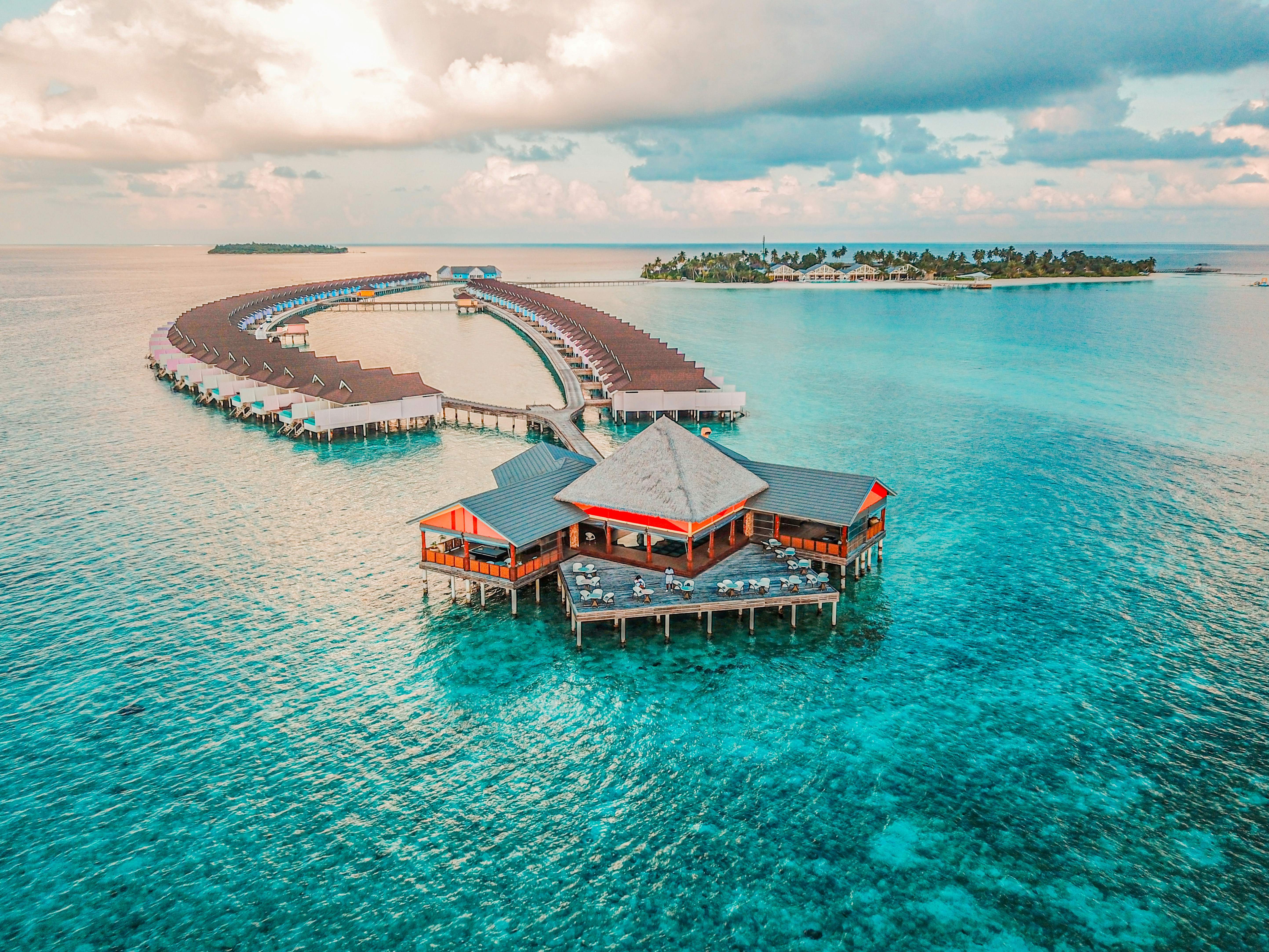Turquoise water gently moves over soft, white sands. Palm trees dot the landscape. Boardwalks lead to over-water huts, showcasing its appeal as a favorite destination for tourists. Behind these picturesque beaches lies more than just natural beauty. The Maldives has emerged as a crucial battleground in the escalating struggle for influence between the U.S. and China, a conflict intensified by the rapid reshaping of the islands due to climate change.
Reflecting on this, Dr. Mohamed Muizzu, President of the Republic of the Maldives, stated at COP28, “In our island nations, every coral, every grain of sand, every fish, and every palm tree, carry value. Their loss is a loss to our economy. For our country.” This sentiment highlights the profound impact of climate change on the Maldives, where rising sea levels threaten not just its environment but its very essence.
By 2050, rising sea levels may render most of the nation uninhabitable. This environmental urgency intertwines with an expanding geopolitical struggle. For the U.S., national security interests extend beyond environmental concerns in the Maldives, largely due to its strategic position on key maritime routes. This is due to the nation’s strategic location along vital maritime routes. In this delicate balance of environmental and geopolitical interests, the U.S. has the opportunity to leverage climate change mitigation as a powerful diplomatic tool in the Maldives, creating a stark contrast with China’s approach.
The U.S. can make a significant impact in the Maldives through targeted climate diplomacy, emphasizing local development and ecosystem preservation. Key initiatives could include blending traditional knowledge with modern science to support ecosystems and renewable energy, as well as responsibly scaling up sand dredging for island elevation, mindful of the ecological balance. Investing in research to minimize environmental impacts during island reclamation is also vital.
This innovative approach, focused on long-term climate adaptation, contrasts heavily with China’s infrastructure-centric strategy. Chinese infrastructure projects in the Maldives, a highlight of the Belt and Road Initiative, have prioritized fast construction. However, this rapid pace often overlooks the environmental cost, especially the carbon emissions that contribute to global warming, a critical concern for a nation like the Maldives. While boosting infrastructure, this strategy creates significant risks to the Maldivian people. The increased carbon footprint and potential ecological disruption from these projects don’t align with the Maldives’ urgent need for sustainable development. As a nation with one of the lowest elevations, the Maldives faces existential threats from climate change, and the environmental impact of large-scale infrastructure projects cannot be overlooked.
The U.S., pivoting towards sustainability and adaptability in climate change measures, faces a complex landscape. China’s assertive presence in the region necessitates thoughtful implementation of the US’ climate-focused strategy. The recent appointment of a China-friendly President in the Maldives adds another layer of complexity. In this context, adopting a grassroots approach to climate change mitigation could prove effective. Aligning closely with the concerns of the Maldivian population, who are very conscious of their environmental vulnerabilities, underscores the importance of climate resilience at the local level.
When navigating these challenges, the U.S. stands at the forefront of defining how global powers can meaningfully engage in climate diplomacy in a rapidly changing world. By leveraging climate change mitigation as a strategic tool in the Maldives, the U.S. not only counters China’s dominance but also supports a sustainable path that resonates globally. This action goes beyond being a policy choice, it’s an ethical necessity in a world facing unprecedented climate challenges. As the Maldives struggles with the threats of climate change, the actions of the U.S. could set a standard for environmental protection and diplomatic innovation in the 21st century.
Written by: Elizabeth Feller, a candidate in Northeastern University’s M.S. in Global Studies and International Relations.


